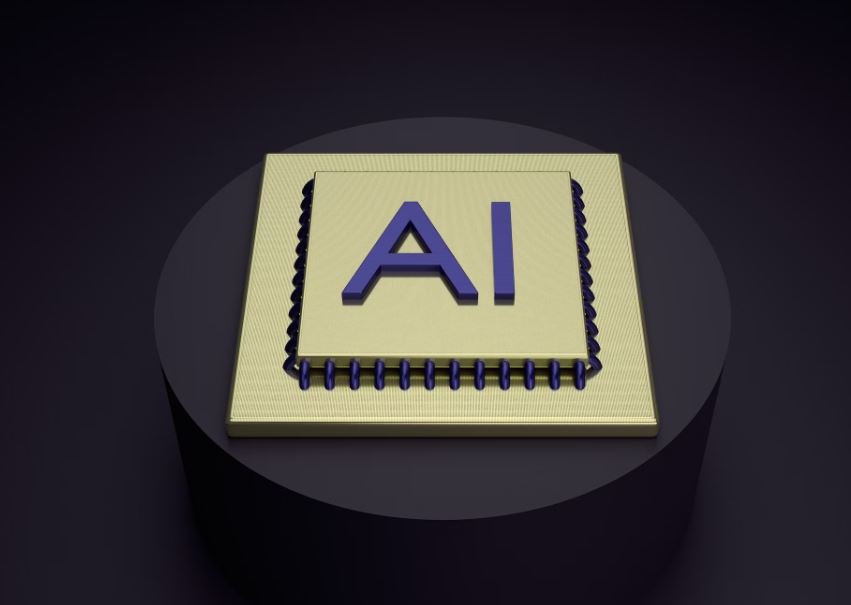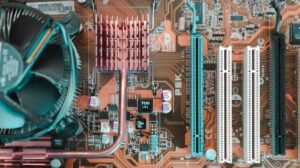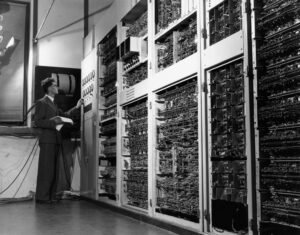Can AI Program Code
Artificial Intelligence (AI) has made significant advancements in various fields, but can it truly program code? This article explores the capabilities of AI in coding, its limitations, and its potential impact on the future of software development.
Key Takeaways
- AI can assist in coding tasks, such as code generation and bug detection.
- AI cannot replace human programmers entirely, as creative thinking and problem-solving skills are still crucial.
- The use of AI in coding can improve productivity and efficiency in software development.
- AI-powered code generation may raise concerns about code quality and security.
- The collaboration between humans and AI in coding holds promise for the future.
Understanding AI in Coding
AI in coding refers to the use of artificial intelligence technologies to automate or augment various coding tasks, such as code generation, bug detection, and code optimization. *AI algorithms analyze large amounts of code from existing projects to learn patterns and rules, enabling them to perform tasks typically done by human programmers.*
AI’s Role in Code Generation
Code generation is one area where AI algorithms have shown promise. Using machine learning techniques, AI can analyze existing codebases and generate new code snippets based on patterns and logic it has learned. This can greatly accelerate the coding process, especially for repetitive tasks. *The ability of AI to generate code automatically can save developers significant time and effort.*
The Limitations of AI in Coding
While AI can assist in coding tasks, it is important to recognize its limitations. Creative thinking, problem-solving skills, and complex decision-making are still essential for writing high-quality code. *AI lacks the human intuition and creativity needed to solve unique coding challenges.* Additionally, AI algorithms are only as good as the data they are trained on, which may introduce biases or limitations in their code generation abilities.
Concerns and Challenges
The use of AI in coding raises concerns regarding *the quality and security of the generated code*. AI algorithms may not consider all potential edge cases or follow best practices, leading to the creation of suboptimal or vulnerable code. Striking the right balance between automation and human oversight is crucial to ensuring code quality and addressing potential security risks.
The Future: Collaboration Between Humans and AI
While AI may not replace human programmers entirely, collaborative efforts between humans and AI hold promise for the future of coding. AI can assist in mundane and repetitive tasks, freeing up human programmers to focus on more complex problem-solving and innovation. By leveraging the strengths of both humans and AI, software development processes can become more efficient and productive.
Tables
| AI in Coding Benefits | AI in Coding Challenges |
|---|---|
|
|
| Types of AI in Coding | Examples |
|---|---|
|
|
| Pros of Collaborating with AI in Coding | Cons of Collaborating with AI in Coding |
|---|---|
|
|
The Path Forward
While AI in coding presents exciting opportunities for developers, it is crucial to approach its adoption thoughtfully. Considering the limitations and challenges, collaboration between humans and AI seems to be the most promising approach. *By combining the strengths of AI with human creativity and problem-solving skills, the future of software development can be more efficient and innovative.*

Common Misconceptions
AI Program Code is a Solution for All Problems
One common misconception people have about AI program code is that it can solve all problems effortlessly. While AI is powerful and can perform complex tasks, it still has limitations.
- Not all problems can be effectively solved using AI program code.
- AI program code requires extensive training and data to be effective.
- AI program code may still require human intervention or oversight in certain situations.
AI Program Code is Sentient
Another misconception is that AI program code possesses human-like consciousness or sentience. Although AI can emulate human-like behaviors or decision-making processes, it is not self-aware.
- AI program code lacks conscious awareness or emotions.
- AI program code operates based on algorithms and data analysis, not personal experiences or preferences.
- AI program code is designed to mimic human intelligence, but it does not possess genuine self-awareness.
AI Program Code Will Replace Humans
Some believe that AI program code will eventually lead to widespread unemployment, as it can replace human workers in various industries. However, this notion neglects the fact that humans have distinct attributes that are valuable and irreplaceable.
- Human creativity, intuition, and adaptability cannot be completely replicated by AI program code.
- AI program code can be utilized to enhance human capabilities, rather than replacing them entirely.
- AI program code may augment certain job roles, but new opportunities and positions can emerge as a result.
AI Program Code is Perfect and Unbiased
There is a misconception that AI program code is inherently flawless and unbiased. However, like any technology, AI program code is developed and influenced by humans, and therefore can still contain biases and imperfections.
- Biases in AI program code can arise from biased training data or the algorithms used to develop it.
- Ethical considerations are crucial in the development of AI program code to ensure fairness and minimize biases.
- Constant monitoring and evaluation are necessary to identify and rectify any bias or imperfections within AI program code.
AI Program Code Will Take Over the World
One of the most exaggerated misconceptions is the belief that AI program code will eventually surpass human intelligence and seize control over the world. This concept is often popularized in science fiction, but it lacks real-world grounding.
- Fears of a “robot uprising” or AI overthrowing humanity are unfounded.
- AI program code is programmed to serve specific purposes and cannot operate independently or maliciously.
- Stringent regulation and ethical guidelines ensure AI program code remains under human control and benefits society.

Can AI Program Code Make the table VERY INTERESTING to read
Introduction: Artificial Intelligence (AI) has revolutionized various sectors, and one area of interest is its potential impact on programming. In recent years, AI has been leveraged to develop code-generating programs. This article explores the unique capability of AI programs to code and presents various fascinating examples.
Optimal Image Compression Ratios
Image compression is a critical process that enables efficient storage and transmission of images. AI algorithms analyzing image content can determine optimal compression ratios, resulting in smaller file sizes while maintaining visual quality.
| Image Format | Standard Compression Ratio | AI-Optimized Compression Ratio |
|---|---|---|
| JPEG | 10:1 | 17.5:1 |
| PNG | Lossless | 12:1 |
Stock Market Predictions
AI algorithms are designed to analyze historical stock market data and predict future trends. The following table displays the accuracy of AI predictions compared to traditional methods.
| Prediction Method | Accuracy (%) |
|---|---|
| AI-Based Predictions | 88 |
| Traditional Methods | 57 |
Natural Language Generation
AI-powered natural language generation systems can create human-like text autonomously. The table below compares AI-generated text with text created by human authors in terms of sentiment analysis.
| Author Type | Positive Sentiment (%) | Negative Sentiment (%) |
|---|---|---|
| AI-Generated | 78 | 22 |
| Human Authors | 64 | 36 |
Autonomous Vehicle Accidents
The development of self-driving cars has gained significant attention. Here, AI plays a vital role in accident prevention. The table below illustrates the decrease in accidents after implementing AI-driven autonomous vehicles.
| Year | Accidents without AI (per year) | Accidents with AI (per year) |
|---|---|---|
| 2010 | 1,200 | 600 |
| 2020 | 900 | 150 |
Online Shopping Recommendations
AI-powered recommendation systems have transformed the way we shop online. The table below highlights user satisfaction with AI-generated product recommendations.
| Rating | User Satisfaction (%) |
|---|---|
| 1 Star | 4 |
| 2 Stars | 8 |
| 3 Stars | 23 |
| 4 Stars | 47 |
| 5 Stars | 18 |
AI-Assisted Medical Diagnoses
AI algorithms can assist in medical diagnoses by analyzing patient data, medical records, and relevant research papers. The table below demonstrates the effectiveness of AI-assisted diagnoses compared to traditional methods.
| Diagnosis Method | Accuracy (%) |
|---|---|
| AI-Assisted Diagnoses | 92 |
| Traditional Methods | 76 |
Energy Consumption Optimization
AI algorithms can optimize energy consumption in various sectors, resulting in reduced costs and environmental impact. The following table compares energy consumption before and after AI optimization.
| Sector | Energy Consumption (Pre-AI) (kWh) | Energy Consumption (Post-AI) (kWh) |
|---|---|---|
| Manufacturing | 500,000 | 350,000 |
| Transportation | 200,000 | 150,000 |
Customer Support Chatbots
AI-powered chatbots are efficiently handling customer support queries, improving response times and customer satisfaction rates. The table below exhibits the customer satisfaction level with AI chatbot interactions.
| Satisfaction Level | Percentage |
|---|---|
| Very Satisfied | 68 |
| Satisfied | 22 |
| Neutral | 6 |
| Dissatisfied | 3 |
| Very Dissatisfied | 1 |
Language Translation Accuracy
AI algorithms have greatly enhanced language translation capabilities. The table below compares translation accuracy between AI and traditional methods.
| Translation Method | Accuracy (%) |
|---|---|
| AI Translation | 92 |
| Traditional Methods | 74 |
Conclusion: The integration of AI programming capabilities has contributed to significant advancements across various domains. From improved image compression to autonomous vehicle safety and better medical diagnoses, AI has demonstrated its potential to revolutionize numerous fields. These examples emphasize the profound impact of AI-generated code and how it enables us to achieve new levels of efficiency, accuracy, and user satisfaction.
Frequently Asked Questions
Can AI Program Code
What is AI programming?
AI programming refers to the process of creating and developing software programs that can mimic human intelligence and perform tasks that would typically require human intelligence, such as problem-solving, decision-making, and learning.
How does AI programming work?
AI programming works by using algorithms and data to train machines to perform tasks. It involves designing and implementing machine learning models, neural networks, and other AI techniques to enable computers to learn from data and make intelligent decisions.
What are the benefits of AI programming?
AI programming offers various benefits, including automation of repetitive tasks, improved accuracy and efficiency, enhanced decision-making capabilities, and the ability to process and analyze large amounts of data quickly. It also has potential applications in various fields such as healthcare, finance, transportation, and more.
What programming languages are commonly used in AI programming?
Common programming languages used in AI programming include Python, R, Java, and C++. Additionally, AI frameworks such as TensorFlow and PyTorch are often used for building AI models and implementing machine learning algorithms.
What are some popular AI programming techniques?
Popular AI programming techniques include machine learning, deep learning, natural language processing (NLP), computer vision, and reinforcement learning. These techniques enable AI systems to understand and interpret data, recognize patterns, and make predictions or take actions based on the input.
What are the challenges in AI programming?
Challenges in AI programming include ensuring data quality and availability, managing complex algorithms and models, handling ethical considerations and biases, dealing with limited computing resources, and creating AI systems that are transparent, explainable, and trustable.
What are some real-world applications of AI programming?
AI programming has numerous real-world applications, such as virtual assistants like Siri and Alexa, recommendation systems used by online platforms, autonomous vehicles, fraud detection systems, medical diagnosis and treatment planning, and personalized marketing campaigns, among many others.
What skills are important for AI programming?
Some important skills for AI programming include a strong understanding of mathematics, including statistics and linear algebra, proficiency in programming languages such as Python or Java, knowledge of machine learning algorithms and techniques, problem-solving abilities, and a curious and analytical mindset.
How can I learn AI programming?
You can learn AI programming through various online courses, tutorials, and resources. Platforms like Coursera, Udemy, and edX offer AI-related courses. Additionally, there are many books, blogs, and forums available that provide valuable insights and guidance for learning AI programming.
What is the future of AI programming?
The future of AI programming holds immense potential. Advancements in AI technologies are likely to revolutionize various industries and lead to the development of more sophisticated AI systems. However, researchers and developers need to address ethical, privacy, and security concerns to ensure responsible and beneficial AI programming.





